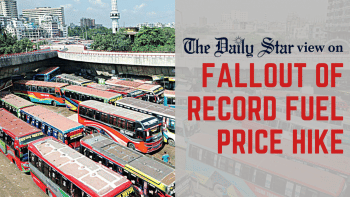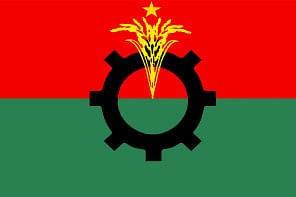Protect farmers to ensure food security

In early June, when presenting the budget to parliament, the finance minister emphasised the importance of boosting food production and ensuring food security. Although the final budget was criticised for not introducing proper measures to increase production, it was evident from his speech that the government acknowledges the importance that agricultural production holds for this country. Why then, we must ask, is it showing apathy towards farmers, without whose labour it is impossible to ensure food security?
In recent months, our farmers have suffered from the consequences of floods, followed up by extreme heat and limited rainfall, which wreaked havoc on their livelihoods through crop losses and low yields. Yet, even before they recovered from the shock of natural disasters, they were hit with a 37.5 percent rise in urea fertiliser prices. And now, they are at risk of being knocked out by the 42.5 percent rise in diesel prices.
It is estimated that the diesel price rise will force farmers to spend an additional Tk 4,000 in irrigation per hectare of Boro production. This is a crop that makes up 53 percent of our total rice production. Around 75 percent of all irrigation equipment is diesel-run. Data from Bangladesh Petroleum Corporation (BPC) suggests that paddy farming burnt over 15 percent of the 46 lakh tonnes of diesel used in FY 2020-21. Does the government have any plans to ease this burden that has been foisted upon already-suffering farmers, especially small-scale ones who account for 84 percent of all farmers and live in highly vulnerable conditions? While there are provisions of a Tk 500 crore stimulus package for the agricultural sector, we are yet to find how this amount will be utilised.
Why then, we must ask, is the government showing apathy towards farmers, without whose labour it is impossible to ensure food security?
There are fears that if farmers are not able to pass on this rise in costs of production and get fair prices, many will give up on farming altogether. This is a huge threat to achieving food security. The alternative scenario – where higher costs are passed on to consumers – is equally grim. Ever since the pandemic, we have seen the prices of essentials continue to increase. Already, high costs of transportation are pushing up prices of vegetables and other foods brought into the cities from across the country. What we are witnessing now is nothing short of a cost of living crisis, and it will only get worse.
In December, a UN report found that 5.2 crore people in Bangladesh are food insecure, a number which went up by 2.4 percent between 2018 and 2020. Why should so many people be facing hunger in a country experiencing "rapid development"? The government must place greater emphasis on protecting the livelihoods of farmers, who are carrying on their shoulders the crucial responsibility of feeding the nation.


 For all latest news, follow The Daily Star's Google News channel.
For all latest news, follow The Daily Star's Google News channel. 








Comments